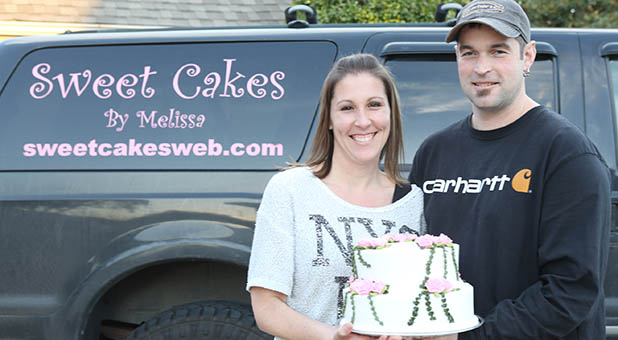Oregon Bakers Continue to Fight Back
Aaron and Melissa Klein, former owners of the bakery called Sweet Cakes by Melissa, were asked by a lesbian to make a cake for her same-sex wedding in 2013.
As devout Christians, they believe participating in such an event would violate their faith and declined the woman’s request, despite having made cakes for her in the past. The woman complained, sparking a religious liberty case that has made headlines all around the world.
First Liberty Institute, Boyden Gray, Tyler Smith, Anna Harmon and Herbert Grey are representing the Kleins as they appeal the State of Oregon’s $135,000 penalty, as well as an order barring them from ever again saying certain things about their religious faith.
This week, they filed a brief, arguing the Oregon Bureau of Labor and Industries violated the Kleins’ constitutional rights to religious freedom, free speech and due process. The attorneys note that, before hearing the Kleins’ case, BOLI Commissioner Brad Avakian made numerous public comments on social media and in media interviews revealing his intent to rule against them.
Additionally, the Kleins’ attorneys argue the state’s $135,000 penalty was “excessive and gratuitous.”
“In America, you’re protected by the Constitution and you’re also innocent until proven guilty,” First Liberty President and CEO Kelly Shackelford said. “Commissioner Brad Avakian decided the Kleins were guilty before he even heard their case. This is an egregious violation of the Kleins’ rights to due process. We hope the Oregon Court of Appeals will remedy this by reversing or dismissing the government’s case against the Kleins.”
Meanwhile, the Colorado Supreme Court weighed in on the issue, albeit in an entirely different case.
The court refused to hear the case of Jack Phillips, a Lakewood, Colorado, baker who was punished for refusing to bake a cake for two men who wanted to celebrate their upcoming same-sex wedding. In Colorado, businesses are prohibited from “discriminating” on the basis of sexual orientation, and an appeals court determined that the law didn’t violate his First Amendment rights.
The Colorado Civil Rights Commission then ordered Phillips to make regular reports to demonstrate how he was working to “correct” his past “discriminatory practices.” His attorneys through the Alliance Defending Freedom had urged the Colorado Supreme Court to overrule both the lower court and the CCRC.
Now that the court has refused, they are reviewing their options.
“We asked the Colorado Supreme Court to take this case to ensure that government understands that its duty is to protect the people’s freedom to follow their beliefs personally and professionally, not force them to violate those beliefs as the price of earning a living,” Alliance Defending Freedom Senior Counsel Jeremy Tedesco said. “Jack, who has happily served people of all backgrounds for years, simply exercised the long-cherished American freedom to decline to use his artistic talents to promote a message and event with which he disagrees, and that freedom shouldn’t be placed in jeopardy for anyone. We are evaluating all legal options to preserve this freedom for Jack.”
















































